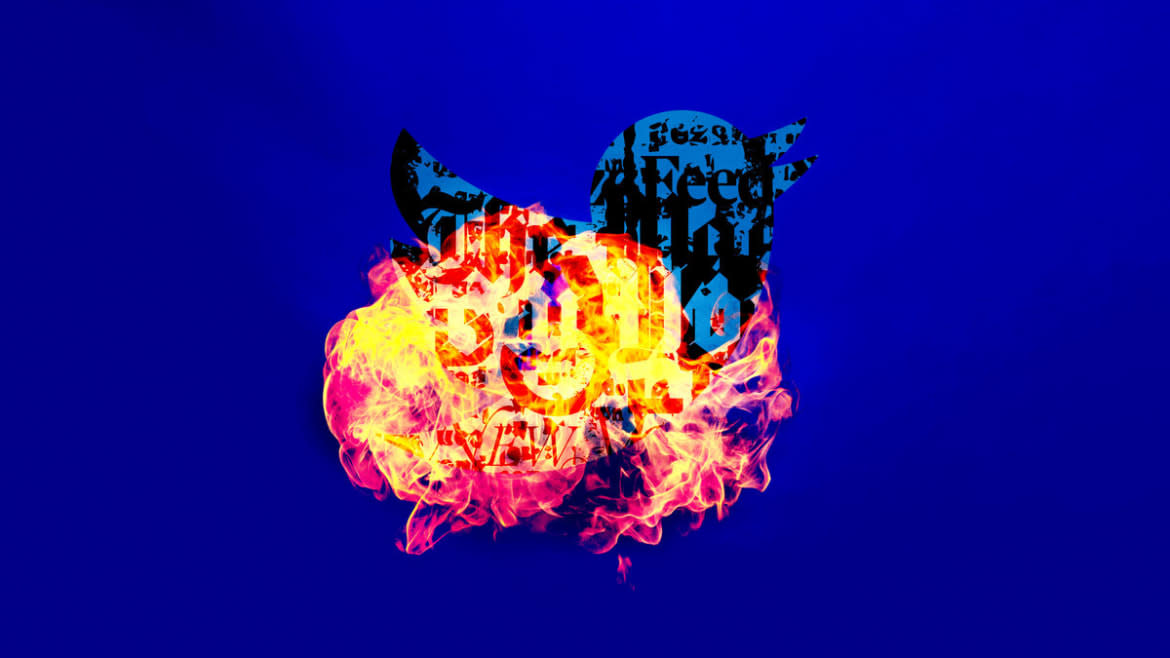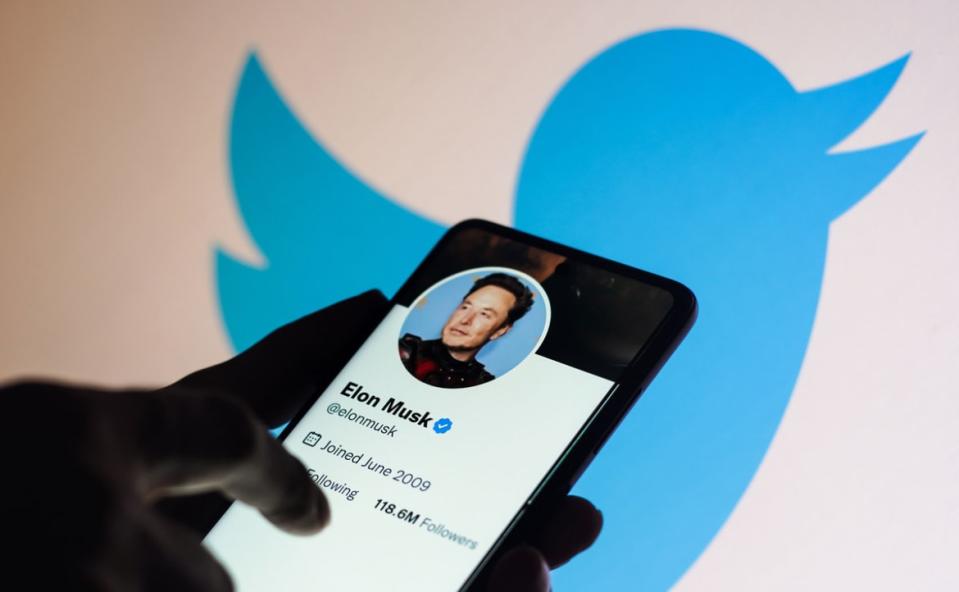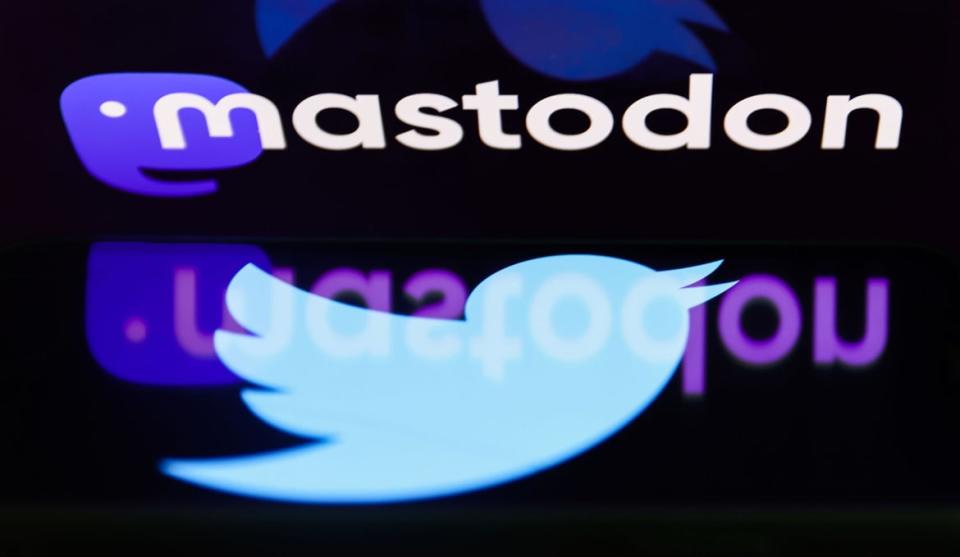Twitter Became Way Too Important to Journalists. Let It Die.

Elon Musk’s takeover of Twitter has played out in the media for months now. It’s one of those stories that won’t go away. After riding into town on a high horse, talking about freedom of speech and eliminating bias, Musk has proceeded to wield power seemingly based only on his own whims, banning accounts that mock him and setting inscrutable rules for what is and is not permissible.
These actions have been relentlessly covered by the news media, usually with howls of angst.
The machinations of one of the world’s richest men will always be of public interest, and Twitter has been a profoundly influential social network for many years now. But part of the reason that such an immense amount has been written and said about this story is that our media class—our writers, pundits, and journalists—is made up of obsessive Twitter users, the kind of people who check the site habitually and ritualistically throughout their day. And that’s why the problems revealed by Musk’s ownership are bigger than Musk.
Elon Musk’s Free Speech Hypocrisy Makes Him the Biggest Snowflake
To be clear, there’s plenty to complain about with Musk’s ownership of Twitter. Musk’s free speech platitudes have proven to be hypocritical, given his zeal for suspending accounts that displease him. He has been particularly zealous when it comes to accounts that have shared the location of his private plane, under the (not very compelling) theory that this amounts to doxxing him and his children. Musk has his shiny new toy, and he's playing with it as he chooses, demonstrating that his commitment to free speech was always bullshit. (Obviously.)
He's ruling based on personal vendettas and pure pique. He’s also constantly tweeting inflammatory things like, “My pronouns are Prosecute/Fauci.”
Legally, Musk has the right to do whatever he might want with Twitter. Absent certain kinds of federally prohibited discrimination, he can ban whoever he likes.
Elon Musk Is a Right-Wing Culture Warrior Above All Else
This leads us to a few obvious observations. Among other things, it’s an object lesson about maintaining a culture of free expression: you should take care not to justify censorship because you will often find yourself the censored, and not the censor. Reap what you sow. For another thing, it demonstrates the fickle hand of capitalism; on any given day, a beloved company can be snatched up by a bad actor with deep pockets and used to whatever ends they like. Which brings me to the deeper problem: the centralization of Twitter itself.
For many users, Twitter has long been the social network they can’t live with, but really can’t live without. The culture of Twitter is notoriously vituperative and angry, with hordes of people at the ready to engage in the latest pile-on, and innumerable voices spewing invective. Some active Twitter users refer to it as “the hellsite.” And yet despite the obvious downsides, many people, particularly in the broad professional world of media and journalism, feel compelled to participate. Twitter is just too important to their careers not to.
Within a few years of the founding of Twitter, the service became something like the default public square of those who worked for newspapers, magazines, TV, movies, universities, nonprofits, and sundry other sectors. Twitter became the place where our chattering classes went to talk to each other, and along with that arose a kind of perpetual popularity contest—with the number of followers and virality of individual tweets helping to define the hierarchy.
As a working writer for the last 15 years, I have had innumerable conversations with various types of content creators who have said that they find Twitter unpleasant, often awful, but feel like they have no choice to be there.
When I was a grad student, several professors told us that having a Twitter account had become an indispensable part of marketing oneself professionally. This advice has become ubiquitous across creative fields. Twitter’s ability to drive traffic to written work, in terms of pageviews, has often been overstated. But in terms of becoming notable among one’s professional peers, of becoming popular, there is truly no place like Twitter.
For more than a decade, I’ve complained about the downsides of Twitter becoming something like the new high school for our media class, with cliques and a popularity hierarchy. Twitter creates echo chambers; Twitter privileges popularity with peers above quality of work; Twitter has bred a culture of conformity in a profession that should be defined by independence of thinking; Twitter is corrosive to seriousness, poise, and rumination; Twitter promotes rushing to judgment; Twitter engenders vindictiveness and undermines forgiveness; and, most central to our concerns here, Twitter concentrates too much influence in a single private company, leaving the entire industry and its professional incentives captive to that company and the whims of those who run it.

Given the uncertain future of Twitter as a network, and company leadership’s antipathy to the liberals who recently treated the site as their clubhouse, many have proposed leaving Twitter for similar apps, such as Hive Social or Post News But if everyone suddenly decamped from Twitter to a similar network, the problems with Twitter would just be replicated. The fundamental issue is not merely who owns Twitter; the fundamental issue is that the centralization of so much elite conversations was always poisonous, and always subject to the whims of capitalism. My sincere wish, then, is that if Twitter were to die, the concentration of so much of elite conversation would die with it. It’s time to decentralize media and its professional culture.
What would media look like after the kind of decentralization I’m proposing?
We already have a model, which is the pre-social media internet.
Cops Give Conflicting Info on Musk’s Claim That ‘Crazy Stalker’ Followed His Son
The concentration of major elements of online life in a few small companies, like Google for search or Amazon for shopping or, yes, Twitter for elite conversation, is not how the internet always was. Prior to the dominance of Twitter, media discourse was distributed and decentralized, with all manner of hubs and spokes. A multitude of blogs existed, and they talked to each other, each in their own set of circles with organic networks built between them based on linkbacks and blog rolls. There are plenty of blogs around today, but to engage in the broader conversation, bloggers feel compelled to engage on Twitter.
But there was a time when that pressure to speak to everyone didn’t exist, and a thousand flowers bloomed. It’s not a coincidence that this was also a period of far greater independence of thought and diverse views in media than today.
The open source social network Mastodon, at least, has many different nodes, known as instances, which differ in culture, content, and terms of service. With Mastodon, there would at least be siloing and side conversations and smaller circles. But if everyone ended up cramming into the same instance, we’d simply be replicating the same old problems with Twitter, including vulnerability to bad owners.

After the financial crisis of 2008 and ensuing recession, we spent a lot of time talking about the concept of “too big to fail”—that is, financial institutions that became such an important part of our greater economic system that the government felt compelled to intervene to save them. This led, in turn, to the argument that institutions that were too big to fail were too big to exist, that we should not allow institutions that have such immense influence on our economy to exist.
For media, Twitter became too big to fail—and thus too big.
The social network has dominated the internal conversation of media for too long; popularity on Twitter has been too central to career prospects for writers, journalists, and pundits. It’s time to embrace the spirit of the early internet and tear down Media High.
It's time to let Twitter die, and to let the overbearing influence of Elon Musk die with it.
Get the Daily Beast's biggest scoops and scandals delivered right to your inbox. Sign up now.
Stay informed and gain unlimited access to the Daily Beast's unmatched reporting. Subscribe now.

 Yahoo News
Yahoo News 
